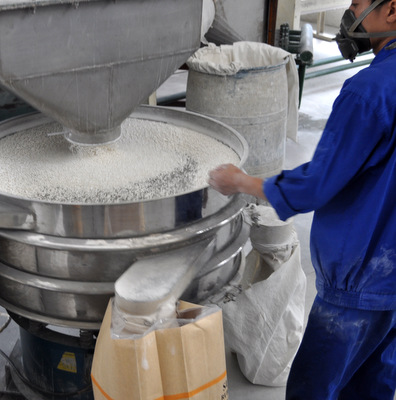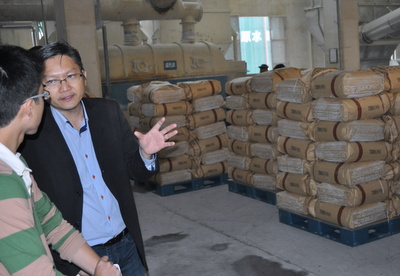Excerpts from Maybank Kim Eng's report
Analyst: Kareen Chan Rubber chemicals produced at China Sunsine. NextInsight file photo.Anticipating future rubber chemical capacity demand
Rubber chemicals produced at China Sunsine. NextInsight file photo.Anticipating future rubber chemical capacity demand
After much delay, China Sunsine Chemical (CSSC) has finally obtained government approval for the trial run of its new 30,000t capacity TBBS production line and a 10,000t insoluble sulphur (IS) line at its current Shanxian site.
Under Phase 1, the first 10,000t will raise total TBBS production capacity to 172,000t and then to 192,000t when Phase 2 kicks in.
|
|
Channel checks suggest that CSSC is the first rubber chemical manufacturer in China to have announced PP&E investments in 2019 to expand rubber chemical capacity.
A budget of CNY2.5b was included in the announcement in 8 March 2019, of which CNY1.5bwill be spent on 534,000 sqm of land and production equipment.
From our last meet with management, CSSC is still in the process of negotiating the land deal with the government.
The land plot is expected to be 1.3x the size of CSSC’s current Shanxian site which has a production capacity of 144,500t. CSSC has highlighted that the project will be carried out in stages, depending on demand dynamics.
Leader in environmental control but smaller players are catching up
The industry experienced record high ASP in 2017-18 as a result of a supply squeeze as the Chinese authority forced chemical manufacturers to shutdown plants which failed environmental regulatory standards.
During that period, eco-compliant manufacturers like CSSC benefitted from higher ASPs and even managed to grow market share. Industry ASP trend is expected to normalise amid easing oil price, trade tensions and a slowdown in the global economy. Smaller Chinese rubber-chemical players could also restart production once they comply with environmental regulations and create more competition.
While CSSC’s current market leadership may be open to attacks from smaller Chinese rubber-chemical players, price elasticity is low as rubber chemicals typically only make up 3% of tyre manufacturing cost. As such, global tyre manufacturers are unlikely to run the risk of switching suppliers as qualification process is long and tedious.
|
Management guidance |
|
|
Revenue & profit |
ASPs of rubber chemicals stabilised in Oct 2018 and production utilisation rates of Chinese tyre makers started to pick up in 4Q18. |
|
Growth Prospects
|
"Higher production leading to higher sales volume" strategy - focus on building production capacity. It has already achieved 172,000t in 1Q19 and has two additional TBBS (20,000t) to reach 192,000t at any point in time if demand warrants. |
|
Capex
|
Earmarked CNY 100m for R&D, CNY 100m for upgrading of machinery and environment protection or maintenance capex and CNY8Om for two additional TBBS production lines for FY19. |
|
Funding sources
|
CNY1.04bm cash pile implies no need for equity-raising or borrowing to fund expansion. Group has not issued any new shares since its listing in 2007. |
| ♦ Valuation and risks |
 China Sunsine is the world's largest producer of rubber chemicals used for tyre manufacturing. China Sunsine is the world's largest producer of rubber chemicals used for tyre manufacturing. NextInsight file photoCSSC trades at 6.1x FY19E consensus forecasts, below industry average of 13.1x and its 10 year historical mean of 6.6x. Ex-cash, valuation drops to 3.9x. CSSC is trading at 51% discount to its closest China-listed peer Yanggu Huatai. Net cash of CNY1.04b or SGD0.42/share should support further expansion without the need for fund-raising. Based on consensus estimate, the street is expecting a 28% drop in FY19E net profit. Better-than-expected ASP and sales volume may provide upside surprise. |
Full report here.






